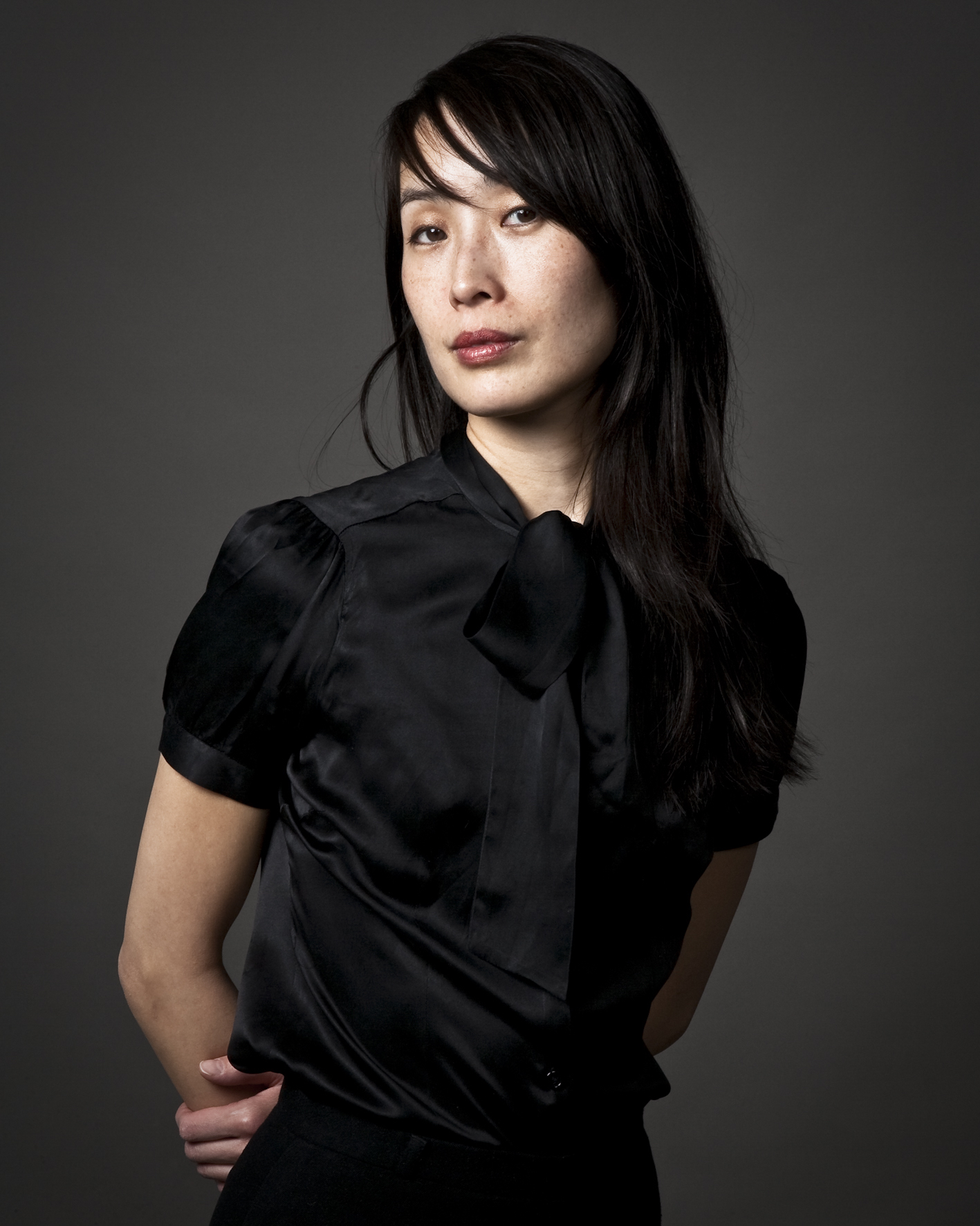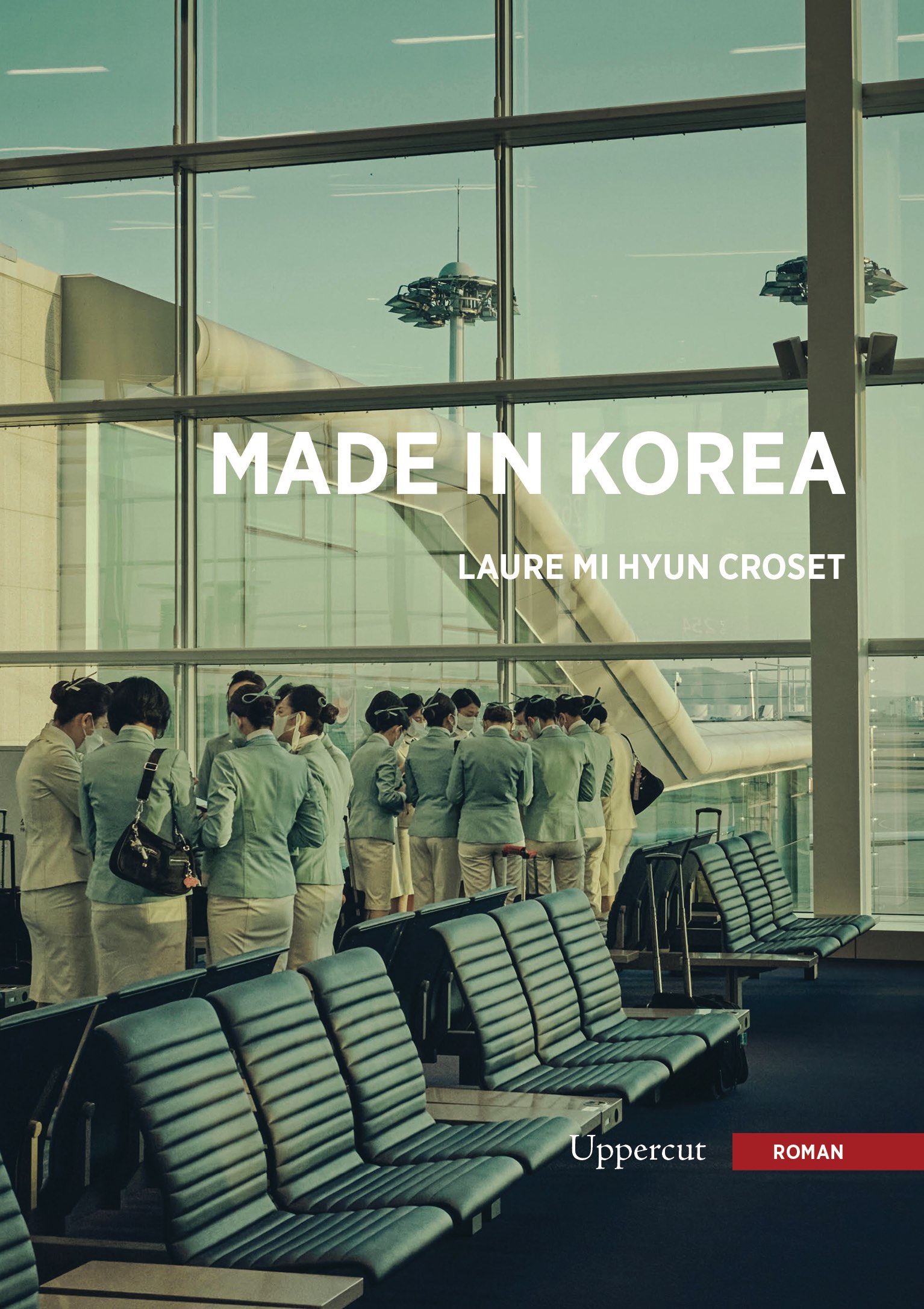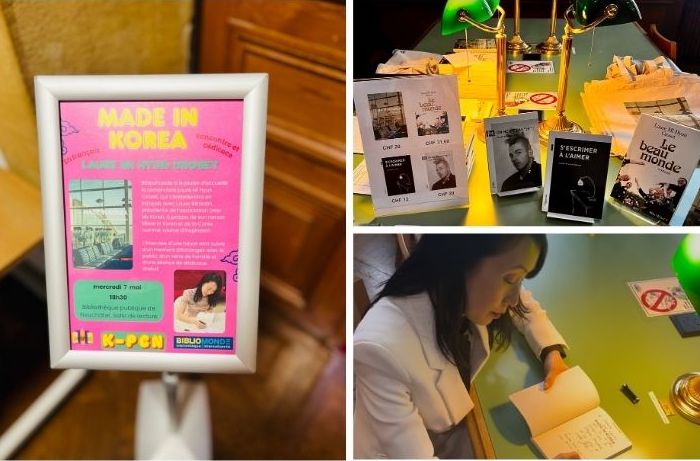A Story Comes Full Circle - Laure Mi Hyun Croset on Writing, Cultural Identity, and Bringing Her Novel
2025-07-25
This spring and early summer, the Printemps Culturel in Neuchâtel, Switzerland, brought Korean culture into the spotlight, offering three months of events across libraries, cinemas, museums, and universities in French-speaking Switzerland. From K-pop to traditional arts, the festival created a vibrant connection between Switzerland and Korea. Among the featured guests was Swiss-Korean author Laure Mi Hyun Croset, whose novel Made in Korea touches on adoption, identity, and belonging. I had the chance to meet Croset at several events during the festival, including a reading at the Bibliothèque publique de Neuchâtel, where she spoke about her book Made in Korea and her personal journey. We continued our conversation via email and again during the closing ceremony of the Printemps Culturel in June. With her two books being translated into Korean and a trip to Korea planned for the publication, Croset shared her reflections on writing, cultural identity, and returning to her roots.
“All of my novels are personal”
Your novel Made in Korea is deeply personal. What inspired you to write this story?
All of my novels are personal because they are all coming from my feelings or my thoughts, sometimes even my obsessions. But the main character of “Made in Korea” has a few common points with me: he is an adoptee from Korea and he is diabetic, but we don’t suffer from the same kind of diabetes. To make it short: I had written a novel for my former French publisher, a big and famous one, who told me that the book I submitted was too weird. When I learned the same week that I had diabetes, I thought my body and my mind were letting me down. So, I decided to write about hard stuff like illness and adoption but in a light way. It was also the opportunity to study more about Korea, the place I was born in and that I love very much.
The story follows a protagonist who reconnects with his heritage through taekwondo and Korean culture.How much of this journey reflects your own experiences as an adoptee?
I must confess, I would be worse than my character at taekwondo, but since I wanted to publish my short novel in my Swiss publisher’s Uppercut collection dedicated to sport and literature, I had to select a sport. In order to write about Korea, I chose taekwondo which is practiced a lot there. I think my personality is very different from my character’s. I enjoy trying new things, following different paths and being around people even though I love solitude too. The protagonist of my book is only discovering life now - he is already 35 years old -, but we share the same curiosity for the Korean culture.

Humor plays a key role in your storytelling. Why did you choose to approach such sensitive topics—like adoption and illness—with irony and wit?
I cannot write literally. I believe my text would be too naïve and too boring. I need to think about serious matters in an ironic and seemingly light way. I don’t want to teach anything, but I try to make people doubt about what looks too obvious or too simple to be true. That is probably the biggest similarity between my books.
What kind of message or feeling do you hope readers take with them after reading Made in Korea?
I usually don’t mean something precise when I write a book. I just want the reader to reflect on his/her own story and about the choices we make to create a society. Maybe this novel confirms that our life can be a lot wider and more fun than we think if we are ready to take some risks.
As someone adopted from Korea and raised in Switzerland, how have your cultural identities evolved over time?
At first sight, I am perceived as an Asian girl. This gave me often a hard time because, when I was young, I didn’t know much about Asia and even less about Korea. And then I developed my relationship with Korea and my knowledge about it started to grow. Now I feel happy about having such a broad and complex identity. I feel Swiss, without difficulties or pride about it. I just feel Swiss.
Do you feel literature has the power to heal or reclaim lost cultural connections, especially for adoptees?
I think literature has a lot of powers. It can make us live someone else’s experience or make us imagine a totally different world. It can also help the author to organize his or her thoughts, but it also makes the unheard people feel understood or the reader develop empathy for others, emotion which we are lacking a lot nowadays.
How do you think your book speaks to young people who are navigating questions of origin and belonging?
I should ask them. Some of my readers like the fact that my novel is not too self-pitying. It’s about adoption, but not in an obsessional way. Young people can discover Korea through a defined prism but in an entertaining manner.
You were the ambassador of this year’s Printemps Culturel in Neuchatel, dedicated to Korean culture. What does that role mean to you personally?
It's a great honor and also a big responsibility to help the festival to reach as many people as possible. I think discovering and enjoying a very different culture from one’s own is a fundamental step toward peace.
How do you see cultural festivals like this helping build bridges between countries like Switzerland and Korea?
I know the hallyu is worldwide, but it still has to be discovered by a lot of people, and it is still necessary to fight against some reductive ideas about the Korean culture. For Korean artists and intellectuals, it is a great opportunity to show their knowledge and talents. It is also creating inspiring links between them and the Swiss audience.
Your book is being translated into Korean. What do you think about seeing your story published in the language of your birth country?
It's very moving. I also had to learn to trust the translator and to let it go, since I cannot verify the quality or the precision of the translation. I am trying to learn Korean to be able to express a few things, but I don’t think I will ever reach the level for reading my novels in Korean.
A friend of mine once told me she felt “rejected” by her own country after being adopted abroad. Did you ever feel that way, and does being published in Korea change that feeling?
I don’t feel rejected by Korea. I felt abandoned by my parents, but then I met my birth father, and I learned that he had never forgotten us, my brother and me. I presently feel that Korea is adopting me, welcoming me back very kindly.
Do you plan to continue exploring themes of identity and heritage in your future writing?
Identity and paths are two of my favorite topics. I love to try to understand why a human being is the way he is, how he could have been and what he could change to be happier. But I like to ask questions and not to give answers.
Have you already received responses from Korean readers—or adoptees who read the French version? How have those reactions affected you?
Yes, many readers who were already fans of Korea or didn’t know anything about it told me they appreciated to get so much information about Seoul and the Korean culture. Many adoptees liked the fact that the story is not too pathetic. Even though my character is very much determined by the fact he was abandoned, he is not obsessed by his adoption. He is pretty happy with his French family. It is always a huge joy to know that someone enjoyed my books.
What’s next for you—another novel, a film adaptation, or a new creative project?
I have a lot of projects. I will promote my novel Polaroïds which is being translated into Korean but also into Italian, so I am revising my skills in Italian language. I will publish a new novel next year, and I am currently writing another one. I am also working on several collaborations with artists in different fields including cinema. I hope some of my books will be translated into English in order that many of my friends will at last be able to read them! My biggest dream is that one of my novels will be adapted into a film!
With the translation of Made in Korea and Polaroïds underway and new creative projects ahead, Laure Mi Hyun Croset continues her journey—one that crosses languages, cultures, and personal histories.

How about this article?
- Like34
- Support0
- Amazing3
- Sad0
- Curious0
- Insightful1


